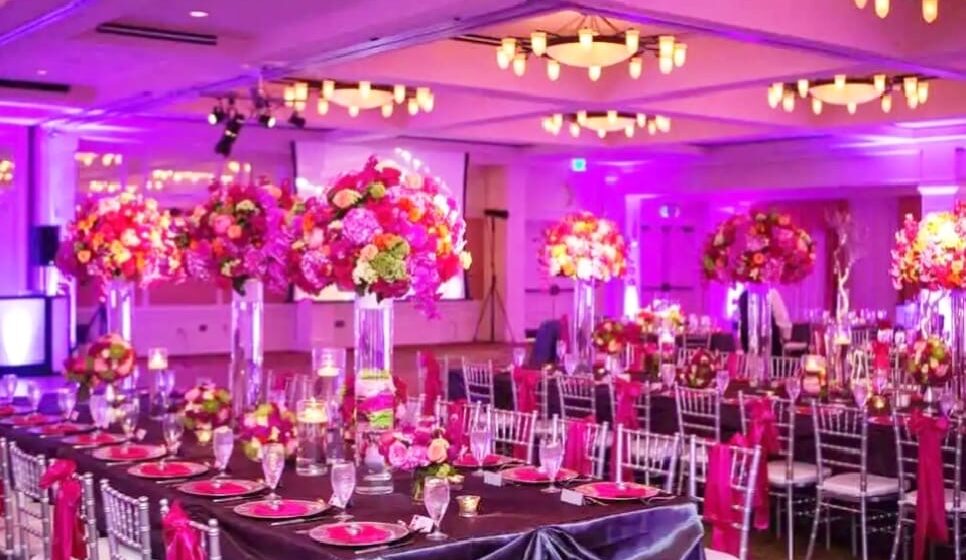From Ngozi Ibe
The event industry has long been a mirror reflecting societal trends, economic conditions, and cultural shifts.
From grand weddings to corporate gatherings, events capture the spirit of their times. But how have they transformed over the years, particularly when comparing the past and present regimes? Let us delve into the evolving dynamics, guided by insights from key players in the industry.
Events have always served as a barometer of social connection and celebration, showcasing the balance between cultural vibrancy and economic realities.
However, recent economic challenges have significantly shaped how events are planned and executed in Nigeria today.
Under the previous regime, there was an air of opulence. Lavish ceremonies with extensive guest lists, elaborate decorations, and gourmet catering were common.
Yet, with the current economic constraints, people increasingly prioritise essentials over excess. As Chalya Wuyep, Founder/CEO of 601 Events, explains, “Clients are now more budget-conscious. They are opting for smaller gatherings, DIY decorations, and focusing on what truly matters.”
Chalya, a seasoned Nigerian event planner with over seven years of experience and numerous accolades—including Best Event Planner in Plateau State (2022)—has orchestrated more than 200 premium events.
Her insights, combined with perspectives from a baker and an event centre manager, paint a vivid picture of the industry’s transformation.
Bakers, too, have noticed a shift toward simplicity. Miracle Shekwoyemi Solomon, CEO/Founder of Yemicakes and Pastries shared the story of a two-tier wedding cake crafted on a tight budget.
The cake’s rough textures symbolized life’s struggles, while its floral designs and colours conveyed hope and beauty.
Despite its modest size and cost, the cake became a centrepiece of the celebration, resonating deeply with the couple and their guests.
It exemplified how creativity and meaningful storytelling can leave lasting impressions without breaking the bank.
Similarly, event centres have adapted to changing demands. Eric of Peachvine Events observed that clients increasingly seek multifunctional spaces to accommodate smaller, more cost-effective celebrations.
This trend underscores the industry’s resilience and adaptability.
Economic pressures have also sparked innovation.
Chalya recalls a wedding where guests scanned QR codes at their tables to access a personalized event website, share photos in real-time, and check in digitally.
This ingenious approach demonstrated how technology can enhance guest experiences while remaining budget-friendly.
Beyond financial considerations, social trends are reshaping the events landscape. For instance, many Nigerians are now cautious about spraying naira notes at events.
Aside from the economic crunch which affected the flow of cash, Nigerians are now mindful of spraying naira notes to stay clear of the fate of Bobrisky, thereby cutting down on the wrongful indulgence of spraying currency at events.
“Bobrisky, whose real name is Idris Okuneye, served a six-month jail sentence for abusing naira” BBC, an unprecedented development —a practice discouraged following recent legal actions.
This shift has encouraged more thoughtful and creative ways of celebrating milestones.
EMERGING TRENDS IN EVENT PLANNING
The evolving industry has brought new trends to the forefront:
Micro-events: Intimate gatherings emphasizing quality over quantity are increasingly popular.
Eco-conscious celebrations: Sustainable practices, such as recyclable decor and edible centrepieces, are gaining traction.
Hybrid events: Combining physical and virtual attendance, these events cater to broader audiences while reducing logistical challenges.
REVISITING THE OLD FAVORITES
Some nostalgic elements are making a comeback:
Nostalgia-driven themes: Retro-inspired events, from 80s disco parties to traditional ceremonies, are on the rise.
Buttercream cakes: Affordable and charming, they are replacing fondant-heavy designs.
Live bands: With a renewed appreciation for authenticity, live music is regaining its place in the spotlight.
What Is Fading
Extravagance: Over-the-top displays are being replaced by meaningful simplicity.
Paper invitations: Digital alternatives are now the norm, combining cost-effectiveness with environmental awareness.
Ornamental souvenirs: Practical, thoughtful keepsakes are taking precedence.
Creative Innovations and Memorable Moments
Chalya highlights the resurgence of balloons as sophisticated decor elements and the reinvention of photo booths with instant digital sharing capabilities. These touches add charm and engagement to events, blending tradition with modern convenience.
Amidst the challenges, humour and joy remain central to the industry.
Miracle recounted an amusing incident where a cake was so realistic that a guest tried to pick it up. Moments like these remind us of the shared laughter and connection that make events unforgettable, which in the long run gave her many referrals for more jobs to come.
Chalya envisions a future where tradition and technology merge seamlessly. She predicts an increase in hybrid events, sustainable practices, and innovative solutions tailored to clients’ needs. Yet, the core of every celebration—connection, joy, and storytelling—will always remain timeless.
Despite economic hurdles, the Nigerian event industry continues to thrive, driven by creativity and resilience.
From grand galas to intimate affairs, the spirit of celebration endures, proving that even in tough times, there is always a reason to come together.
Showing us that there is always a way even in tough times. Proving that gratitude amidst hard times propels excellence and even more joy brings goodness to all.









Leave a Reply